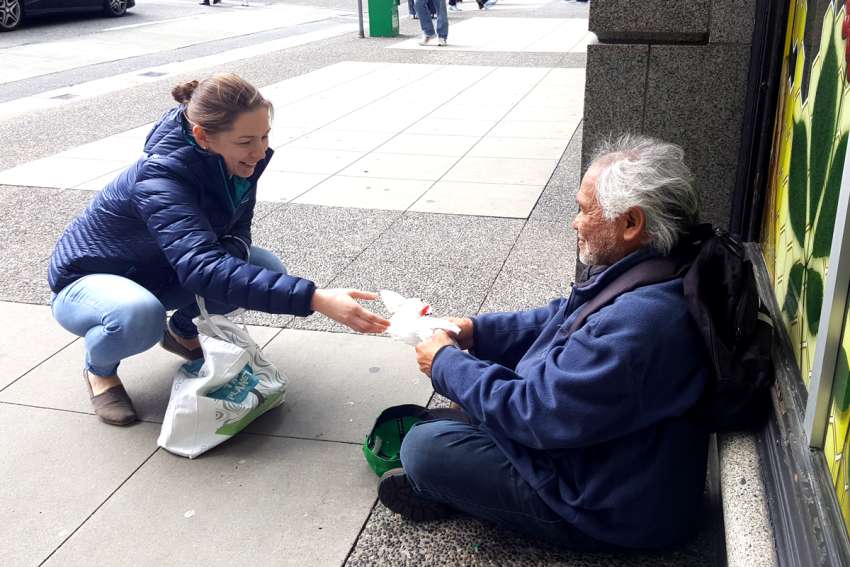One could summarize the principles of Catholic social teaching as including a passionate advocacy for the respect of the human person, for the dignity of work and workers, as well as a defence of the poor and the pursuit of peace. It isn’t difficult to see how these core values are transposed into the field of health care in general. Providence Health Care in Vancouver, for example, defines their mission as specifically dedicated to “meeting the emotional, social and spiritual needs” of those they serve. Based on this, one would think that social justice is an uncontested term.
Like all things, however, this isn’t the case. Seemingly innocuous enough, social justice depends on one’s point of view. As a university president, I asked a major donor to fund what I felt was a critically important social justice initiative my institution was championing. “Oh, no,” he said. “I don’t support socialism.” Yet he built housing for the under-privileged, funded medical care for economically disadvantaged citizens and scholarships for children from low socio-economic backgrounds. But the term came to him loaded with baggage. When I resubmitted an application for support of a local shelter, he didn’t blink an eye.
This donor was not wrong. Social justice has been a dish served in many different guises since the term was first coined in the 19th century by the Jesuit scholar Luigi Taparelli. If memory serves, however, Taparelli’s definition of social justice argued for addressing social inequalities while legitimizing aristocratic rule, arguing that natural imbalances between individuals were a legitimate part of the social order. Perhaps I’m being a tad unfair to Taparelli, but he would not be the first to contextualize understandings of justice from within a specific cultural framework of the time.
The Oxford English dictionary defines the objective of social justice as “creating a fair and equal society in which each individual matters, their rights are recognized and protected, and decisions are made in ways that are fair and honest.” While that definition seems innocuous enough, one of its most recent entries, suggesting the very opposite values, is the term “social justice warrior,” which is virtually always used as a derogatory term. Or, more specifically, the term in the public space began as a compliment but came to mean anyone who engages in self-aggrandizing ways, championing projects that fetishize the cause but only in a superficial or opportunistic way.
My own personal concern with the tyranny of labels is that it can distract us from the important work we all need to do to encounter our fellow citizens: to reach out and do good for the sake of caring values irrespective of terminology. I once attended a conference where the panelists spent the entire time arguing about the etymology of their labels, but the issue of social service that was actually on the table went entirely unaddressed.
So naively, perhaps, here is how I personally understand the notion of social justice. It’s a concept that acknowledges inequality on a global, but also a local scale. It invites us to be aware of the unequal distribution of power, privilege, resources and so much more. It calls on us to venture into unfamiliar, and often uncomfortable, spaces to understand the world from someone else’s point of view and to see how that unequal distribution of power affects another. It then challenges us to do something about it.
True social justice warriors are prepared to see and confront their own biases and understand that to effect change may well mean an interrogation, and perhaps even an erosion, of their privilege. It can be frightening. Certainly humbling.
Pope Francis says social justice “demands that we fight against the causes of poverty... and against the culture that leads to taking away the dignity of others.” If we extend this to human health, would it not similarly call on us to provide equal access to health care, to spiritual care, to human dignity?
(Turcotte is President and Vice-Chancellor at St. Mark’s and Corpus Christi College, University of British Columbia.)


